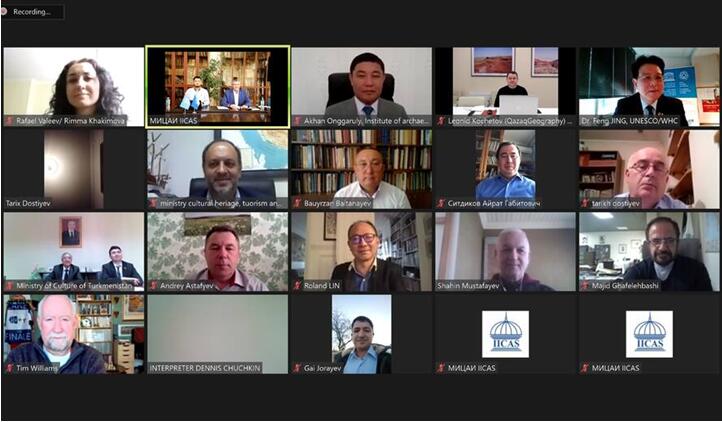Silkroads News
Expert Meeting launched the UNESCO/Japan Funds-in-Trust (JFiT) project “Support Silk Roads World Heritage Nomination(s) process” (Phase III)
Feng Jing, Chief of Asia and the Pacific Unit and Coordinator of the Silk Roads project states that “serial transnational nominations of the Silk Roads foster international cooperation, which is at the heart of the 1972 World Heritage Convention, particularly on occasion of its 50th Anniversary”. He also presented an overview of the Silk Roads project and its achievements. UNESCO representatives and the international experts provided background information on Phases I and II of the JFiT project “Support Silk Roads World Heritage Nomination(s) process” and the key achievements, outlined the main points of the resulting publication Silk Road: an ICOMOS Thematic Study, and outlined the activities planned as part of Phase III. The participating States Parties (Azerbaijan, Islamic Republic of Iran, Kazakhstan, the Russian Federation and Turkmenistan) presented their national efforts for the initial identification, protection, conservation, presentation and management of related heritage sites linking to the Silk Road Volga-Caspian heritage corridor.
The previous phases of the JFiT project “Support Silk Roads World Heritage Nomination(s) process” have yielded a number of significant results, including the successful inscription of the World Heritage property “The Silk Roads: the Routes Network of Chang’an – Tian-shan Corridor”, jointly put forward by China, Kazakhstan and Kyrgyzstan and inscribed on the World Heritage List in June 2014. The project also provided technical support to the serial transnational nomination “The Silk Road: Zaravshan-Karakum Corridor”, jointly prepared by Tajikistan, Turkmenistan and Uzbekistan. Noting the achievements of the previous phases, and taking into consideration the interest of the participating countries, institutions and experts, this third phase focuses on enhancing and reinforcing the capacity of participating States Parties, institutions and experts in the identification, documentation, preservation, management and interpretation of heritage along the Silk Road Volga-Caspian corridor. The project will contribute to achieving the United Nations’ Sustainable Development Goals, and especially Target 11.4 for the protection of the world’s cultural heritage and Target 8.9 for the promotion of sustainable tourism which creates jobs and promotes local culture and products.
Category: English
News
Silkroads News
Key words:
